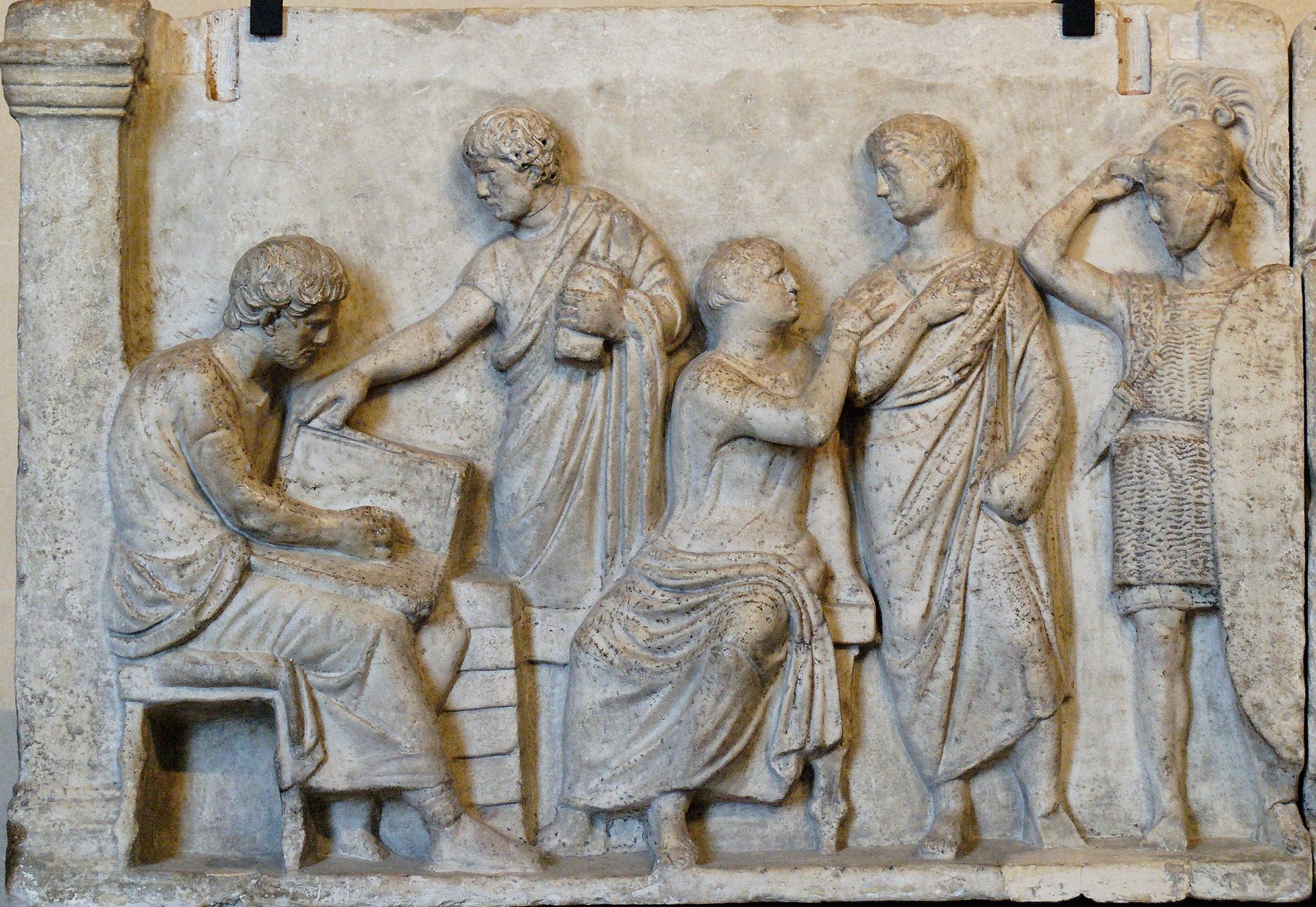Luke’s account of Christmas has a census as the reason Jesus birth took place in Bethlehem. As we come into the Christmas season I want to reflect on the nature of what statisticians do, in the light of the Bible’s views of census.
So let’s start with the obvious – and the instantly problematic. Because the census at the heart of Luke’s account of the nativity is not a census but a registration. It is not a numbering but an enrollment, a writing down of names rather than obtaining of numbers. That might seem a picky point. After all the registration was probably still going to be used for the same purpose – taxation. But it does matter – names matter. Some of you might have seen the 1960’s TV show The Prisoner – whose hero’s protest throughout was ” I am not a number”. Our names, our identities matter. We are not just numbers. Our names are, we hope, written in the book of life which the book of Revelation refers to again and again. There is not simply a numerical quota system for entry to heaven!
Back to census, but staying with Revelation. There is another theme, another tension which we need to acknowledge. It comes in Revelation 7. A very specific number, 144,000, of those who are sealed as servants of God is identified. And the next thing we see is that there is a “great multitude, which no one could count”. There is a tension between what is and is not countable, what may and may not be counted.
It is not just that some numbers are too big. We have big numbers, especially now. We have much bigger numbers than they had in bible times where thousand was the biggest single numerical value available. We have big data and multiple powers of ten, and words for many of those. But in the bible, some numbers may not be counted. These are the provenance of God, because God is a statistician. God knows the life of each sparrow and counts each hair on our heads.
Deep enough so far? Well, it gets deeper as we head into the Old Testament. There is a excellent short article online by a Hebrew scholar, Prof. Suzie Park, on ” counting and census in the Hebrew Bible” here.. What I found most intriguing is the recognition that census taking is “sacred and dangerous”. There are many censuses in the Old Testament – more than I had realised. They evidently have a variety of purposes from taxation to purification. I had not remembered that the people of Israel were counted both before and after the 40 years in the wilderness – see the start and end of the book of Numbers. This counting had the express purpose of showing that none of those who rejected the promised land would enter it! Not one of the purposes for which we count today!!
The primary reference for census taking being “sacred and dangerous” is the story of David’s census. David’s census forms part of the story of the founding of the temple in Jerusalem. And there are two versions (2 Sam 24 and I Ch 21) which have different accounts of who originated the Census. David, and eventually the people of Israel, get the blame. How did David err? There is no clear answer in the scripture. By one account, God told him to do something and he did it. But somehow, in doing this, David strayed onto forbidden ground, and he, or rather the people of Israel, were punished. The avenging angel brought three days of plague and killed 70,000. Interesting that the plague has a number of the dead attached to it.
Census, counting God’s people, is holy ground, holy work. In counting we put numbers on God’s people who God says are to be more numerous than the stars in the sky or the sand on the seashore. The book of Revelation tells us Gods people in heaven are more than can be counted. As Prof Park says “Counting symbolized God’s mastery, power, and sovereignty over the created universe. Counting therefore was seen as the unique purview of God.”
When we count God’s people we do holy work, whether this is in a local Church or at the national level. We tread on God’s territory. We might well do this in fear and trembling. In spite of our best methodologies and our most careful attention to detail, we do not know everything about the people whose lives we are turning into data. We should not be presumptuous in our reporting, for it is God who is the Alpha and Omega, not us or our numbers.
Whilst this might seem strange, in other ways it is familiar. As we share our census data we speak truth to the church. Often we speak truth to those in power, who may not want to hear what we have to say. We do this in fear and trembling. In some ways it feels like a prophetic ministry. We read the signs of the times in our data and interpret them to those who have ears. We know ourselves as doing significant, important, meaningful work. That is why we do it.
Someone recently described their surprise at ending up with a career in Church Statistics. I was surprised because I could not conceive of Church Statistics being a career! But I think the word career in this context is a misnomer. If we take scripture seriously then church statistics is a vocation, a spiritual calling, to walk on holy ground.
Comment on this edition of NumbersMatters
by joining the “Church Statistics” Facebook group,
or by emailing me – nelliot(a)national.anglican.ca
